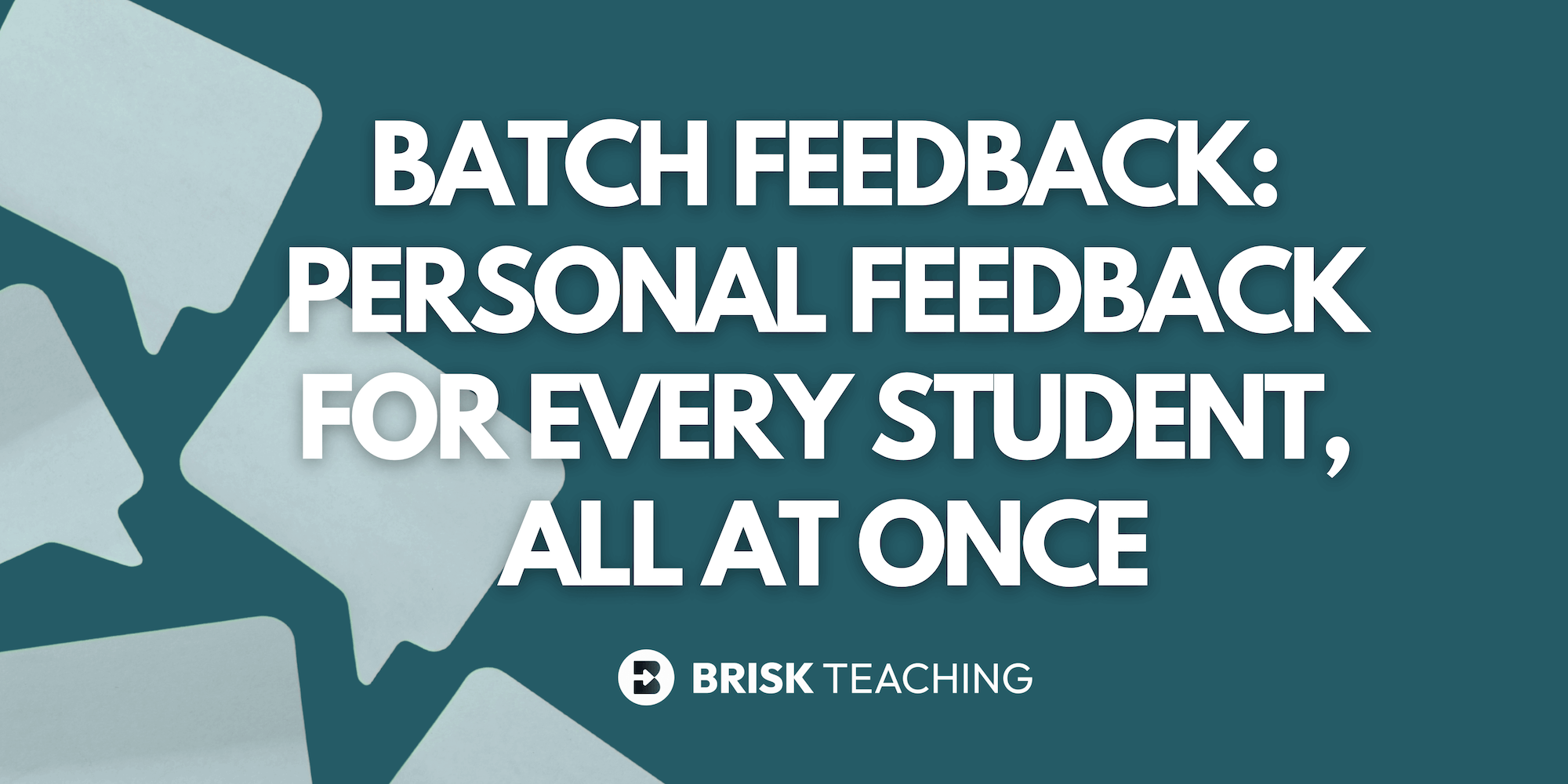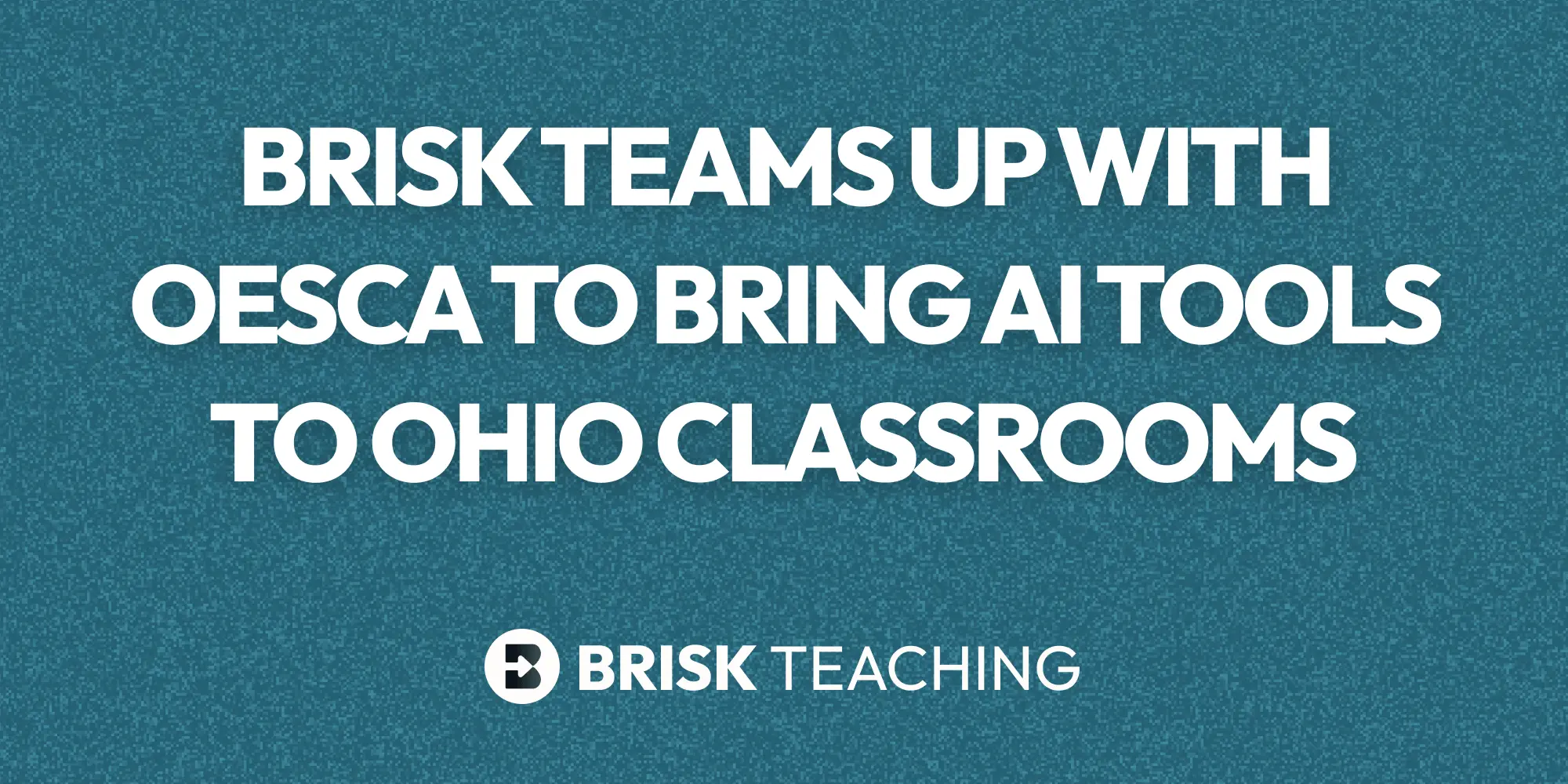Why Students Need to Understand Voting and Elections to Become Engaged Community Members
Teaching students about voting and elections helps them develop a strong sense of civic responsibility. When students understand how elections work and why voting matters, they learn that their participation can influence real change in their community. This knowledge encourages critical thinking, respect for different viewpoints, and the importance of staying informed. Ultimately, students who grasp the value of voting are more likely to become active, engaged citizens who contribute positively to society.
Creating a Lesson Plan in 2 Minutes with Brisk: Step-by-Step Guide
Step 1: Install the Brisk Extension and pin Brisk to your browser toolbar.
Step 2: Open up a blank Google Doc and click the Brisk Chrome extension (“B” icon) in the bottom right corner of your screen.
Step 3: Click the ‘Create’ button and then click ‘Lesson Plan’.
Step 4: In the text box, type: “Election and Voting Process Inquiry-Based Lesson Plan ”
Step 5: Select the appropriate Grade level and Standard (optional).
Lesson Plan: Elections and the Voting Process in the US
Grade Level: 5th Grade
Duration: 50 minutes
Topic: Elections and the Voting Process in the US
Lesson Type: Inquiry-Based Learning
Common Core Standards:
- CCSS.ELA-LITERACY.RI.5.1: Quote accurately from a text when explaining what the text says explicitly and when drawing inferences from the text.
- CCSS.ELA-LITERACY.RI.5.2: Determine two or more main ideas of a text and explain how they are supported by key details; summarize the text.
- CCSS.ELA-LITERACY.W.5.7: Conduct short research projects that use several sources to build knowledge through investigation of different aspects of a topic.
Objectives:
- Students will understand the basic concepts of elections and the voting process in the United States.
- Students will engage in inquiry-based learning by asking questions and conducting research.
- Students will summarize their findings and present them to the class.
Materials Needed:
- Whiteboard and markers
- Chart paper and markers
- Access to books and articles about elections (print or digital)
- Inquiry question handouts
- Sticky notes
Lesson Structure:
Introduction (10 minutes)
1. Hook: Start with a question: "What do you think makes an election fair?" Allow students to share their thoughts.
2. Discussion: Write responses on the whiteboard. Introduce key terms: election, voting, candidates, ballot, democracy.
3. Objective Sharing: Explain that today they will explore the voting process and why it is important.
Inquiry-Based Activity (30 minutes)
1. Form Groups: Divide students into small groups of 4-5.
2. Inquiry Questions: Provide each group with a set of inquiry questions to guide their research. Examples:
- What is the purpose of an election?
- How do people vote?
- What are the steps in the voting process?
- Why is it important to vote?
3. Research Phase:
- Allow groups to use books, articles, or online resources to find answers to their questions.
- Encourage students to take notes and highlight key information.
- As they research, have them write down any new questions that arise on sticky notes.
4. Group Discussion: After 20 minutes of research, have each group discuss their findings and prepare a summary to share with the class.
Presentation and Reflection (10 minutes)
1. Group Presentations: Each group shares their findings with the class (2 minutes per group).
- Encourage them to use chart paper to illustrate their points if time allows.
2. Class Discussion: After all presentations, facilitate a class discussion on the importance of voting and how it affects their lives.
3. Reflection: Ask students to reflect on one new thing they learned about elections and why it matters. They can write this on a sticky note and place it on a designated "Voting Wall" in the classroom.
Conclusion (5 minutes)
1. Wrap-Up: Summarize the key points discussed in class. Reinforce the importance of participating in elections.
2. Exit Ticket: Ask students to write one question they still have about elections on an index card to be collected as they leave.
Assessment:
- Observe group participation and engagement during research and presentations.
- Review sticky notes from the reflection activity to gauge understanding and interest.
- Collect exit tickets to identify any remaining questions or misconceptions.
Extensions:
- Consider inviting a local election official to speak to the class about the voting process.
- Organize a mock election in the classroom to provide hands-on experience with voting.
Use Brisk to Customize This Lesson Plan in Just a Few Clicks
Here’s how to modify this lesson plan in seconds:
Step 1: Install the Brisk Extension and pin Brisk to your browser toolbar.
Step 2: File > Make a copy of the lesson plan.
Step 3: Click the Brisk Chrome extension (“B” icon) in the bottom right corner of your screen.
Step 4: Click the ‘Something Else’ button.
Step 5: Type in the text box and ask Brisk to adjust the lesson plan for your students. The more specific you are, the more tailored your lesson plan will be!
This will be a great introduction lesson for your fifth-grade students and prepare them for the election and future elections.
.webp)
.webp)






